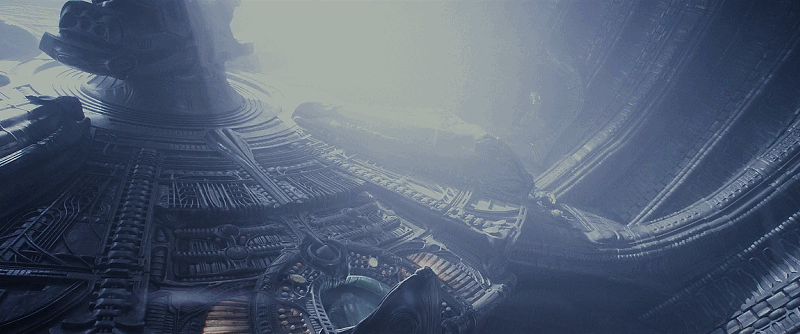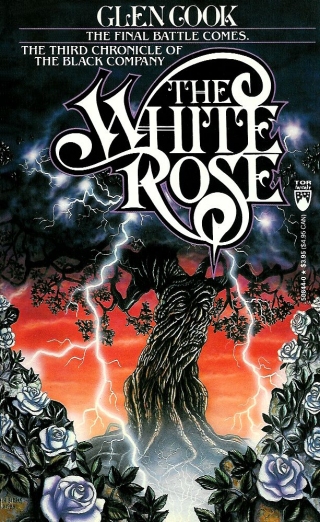
Late to the party, but I’ve only seen this movie yesterday. I think that it’s honestly one of the worst movies I’ve ever seen but online it seems the complaints are mostly directed toward the nonsensical plot, while I think instead the plot is more or less straightforward. It’s just a really bad movie. It’s bad as an action movie, visually is only average and doesn’t have a single memorable scene, it’s overflowing with cliches of every kind, and it’s utterly predictable up to its last frame. I just can’t find a single redeeming quality. It’s supposed to ask “big questions” but all its themes are shallow, juvenile and surpassed by average sci-fi. It’s Hollywood at its worst. Big budget spent with zero inspiration whatsoever and a screenplay entirely written by cutting & paste every other Hollywood script. Dull, stupid, naive and clumsy.
But none of these problems are really about “plot holes”, or the movie being too obscure and mysterious. Or complex. This is nothing more than juvenile sci-fi that doesn’t even have the qualities of the Golden Age. Pretentious without doing anything pretentious. That’s why I think that the plot is actually rather straightforward and makes sense. And that’s why I’ll explain some of its mythology, since I’m always interested in figuring out things. Even if in this case there aren’t any worthwhile mysteries to discover.
What’s the “black goo” substance?
That’s one of the most asked questions on the internet, and one I actually didn’t ask myself at all. For me it was so immediately obvious that I never considered it a “mystery” at all. The black goo liquid is just the vehicle of a mutation. Think of a syringe, and how it can contain a poison or a medicine. If you showed a movie to an alien who never saw a syringe and show him a scene where this syringe is used to kill someone, then the alien would naturally associate the idea of the syringe with that effect. But we know that the syringe is merely a tool that can hold different stuff. The black goo works on a similar principle: it’s just how these alien “Engineers” perform their mutations.
In the Prologue scene we see an Engineer, alone on a planet, drink black goo and suddenly collapse, falling in the water (not a coincidence, since life is symbol of the source of life). The black goo carries the mutation itself. In this case the body of the Engineer is first dissolved, and then used to rebuild a new form of life: human beings as we know them. It’s not even necessary to pinpoint if this was the specific case of Earth, what the Prologue shows us is the custom of these Engineers: seeding life on different planets according to their own plans.
The black goo that instead they find in the alien chamber, later in the movie, doesn’t obviously carry the exact same type of mutation agent. It’s the same tool/vehicle, but carrying a different effect. What happens there, and probably a sign of what happened during the “outbreak” that killed most Engineers, is that, as shown in the Prologue, the black goo becomes active when it gets in contact with the air. The room was isolated, but then is opened by these curious human explorers, the black goo activates and there’s a scene showing one of those tiny worms going right into a pool of black goo. Off screen it begins to transform into that bigger snake thing that will kill the two dudes later on. So the pattern is always: black goo + host = new species. This merely to explain logically why we have a difference of effects.
Why does David the android infect Shaw’s love interest (Charlie)?
This is an important plot point with lots of implications. The main (and only) true purpose of the Prometheus mission was to find a way to keep alive the decrepit old Wayland guy. The one who actually pays for the mission and is on the ship in incognito. Before the android starts to play with the black goo we have a scene showing him interacting with Wayland, so instructing the android what to do next. When David is then confronted by Charlize Theron he tells her they have to “try harder”.
Try harder simply means that Wayland cares nothing about secondary purposes, or even the good health of his crew. Like in EVERY OTHER Hollywood movie, we got the powerful rich guy who’s selfish and arrogant, and will do everything to obtain what he wants, even if he has to kill everyone else. That’s what we see. As far as he’s concerned the black goo may be well the elixir of eternal life, so why not test it on one of the crew, especially one who has outlasted his purpose?
That’s the main “plot” reason, but there are also stronger thematic implications. The first is obvious and about the dramatic tension. At that point of the movie we are meant to question the android behavior. Does he knows something we do not? Is he following some hidden agenda? Is he going out of control all HAL 9000 on the crew? All these are essentially dead ends, but they add that shallow ambiguity and mystery this movie aims to.
The second thematic implication is much more important. If you notice David asks Charlie’s “consent”. He explicitly asks how far he’s willingly to go in order to discover the truth about those who “created him” (the Engineers). Charlie’s answer is: “anything and everything”. That’s what David takes as consent. By giving him the black goo and infecting him with it, he gives him that “first contact” with his “maker”. A truth that could even kill him. But there’s an even more important exchange. David first asks why humans made androids (so replicating the pattern of creator/created, father/son, or Engineer/human being) and Charlie answers: “because we could”. David replies: “Can you imagine how disappointing it would be to hear the same thing from your creator?” This is just the most obvious foreshadowing, but it’s important to notice how every character always has that forced and annoying patronizing tone and constant sneer toward the android. For the whole length of the movie. When this happens in a Hollywood movie it’s because they really want to ram on that point.
Why does the awakened Engineer kill Wayland and almost destroys David?
Because once again simplistic THEMES take control of plot. This is a movie called Prometheus, showing a mission called Prometheus, that very openly plays with the Prometheus myth. The myth describes a typical “tabu”: the desire to be like god.
In the specific case of this movie, the tabu is “eternal life”. The ultimate desire of Wayland. So that scene with Wayland in front of the Engineer is a very obvious archetype of a man facing his god and DEMAND he gives him eternal life. Notice how Wayland is portrayed through the whole movie as the arrogant, selfish guy. His stance doesn’t change even when he faces his maker. He’s just there pretending his wish fulfilled.
Now you have to realize this is a movie made by human beings (Ridley Scott and Damon Lindelof). Human beings have this tendency to take Big Unanswerable questions in fiction to try answer them. The typical solution is to make a perfectly legitimate question (why I have to die) into a tabu. An holier-than-thou. A sacred unanswerable thing. Being Holy means that you either accept it, or end up committing a SIN. It’s the typical non-answer. Holy means: righter than you. So if you oppose it, you automatically lose every right, authority or legitimation.
So what happens in fiction when a character demands eternal life? That he’s killed. It’s part of the archetypal script Prometheus is cut&pasted from. Also consider the non-irrelevant fact that, as seen in the Prologue, an Engineer is ready to sacrifice his own life to seed a planet with new life. This means they value evolution far more than personal preservation. Here we have instead Wayland pretending to be given immortality, a very selfish desire, and it’s very obvious that it’s considered by the Engineer the violation of everything he believes in.
Plot-wise the movie hammers on a particular point, in the way you realize it wants no-question-asked. There are two plot-points that are bluntly hammered by the movie. One is about establishing Charlize Theron as non-android (no one really asked until the movie did). The other is the out-of-the-blue revelation that the stone cylinders contain some sort of mass destruction weapon that was then meant to destroy life on earth.
Plot-wise, again, this means the Engineer really shouldn’t have any sympathy for human beings. But more in general it’s the theme of the android/human relationship that carries the action: the same way human beings show no respect or compassion or even consideration for David, throughout the movie, so happens when the pattern is repeated between humans/Engineer. The Engineer shows no compassion.
Why did the Engineers decide to destroy the human life that they themselves seeded in the first place?
This is one of the open ended questions. Those questions that the spectator should interpret his own way. More specifically, this is a question very obviously meant to be answered in a planned sequel.
Without a sequel, my interpretation is that the Engineers didn’t really want to destroy life. They just carry on their quirky experiments. If we accept the fact that the alien ship, carrying the xenomorph goo, was headed for Earth, the purpose here is likely about the experiment itself.
As a weapon of mass destruction the xenomorph aliens aren’t that efficient. You’d guess that aliens that can manipulate genetic code could wipe off a planet far more easily than sending down creatures in hand-to-hand combat. So if they wanted to use the black goo it means they wanted a genetic experiment. Like crossing the genetic code of those aliens with the one of humans, to obtain some hybrid. Or maybe even as a Darwin test, to see if human beings became good enough to survive an invasion: let’s see between humans and xenomorphs who deserves survival.
Btw, this whole deal of thematic depth about the origin of life seeded by aliens and relationship with god is obviously a very shallow and juvenile reproduction of what we have already seen in 2001: A Space Odissey. It’s that plot, made into a Bad Hollywood Movie, that doesn’t even add anything worthwhile to the Aliens mythos.
Btw part-2, Apocalypse, a character from the X-men comics, looks rather similar to the Engineers, and you could say he has their exact same agenda. Including reappearance through history to check on human evolution.
Was Charlize Theron’s character an android?
This could have two answers. If there’s a sequel, it’s possible that she was an android and so would reappear. The movie made clear she’s not one, but her death is a bit suspicious since we only see the ship falling and a whole lot of smoke. Maybe as an android and thanks to the sandy terrain she could survive the impact and play a role in a sequel.
Without a sequel instead it’s very clear she NOT an android. We see her shoving David against a wall, but this is not a test of strength. David has absolutely no reason to harm her, she’s Wayland’s daughter even if Wayland doesn’t have much regard for her. So the scene doesn’t really mean much. Still, it’s very possible that Ridley Scott has this kink for androids who pretend to be human, and so added some ambiguity simply because it’s what you expect from him.
Was that Acheron, the same planet of the first movie?
No.
Why in the classic Alien the alien things come off the egg shaped organic things, whereas in Prometheus the “eggs” are made of stone and contain black goo?
Because the stone cylinders are very obviously not “eggs”. What you see in Prometheus is how Engineers do their job of seeding life. We don’t know if they engineered the xenomorphs, or if they simply took inspiration and copied them, but the black goo is the artificial creation, that embeds with an host and mutates it. Whereas the “eggs” are how living xenomorphs reproduce. The Alien queen lays eggs, it doesn’t build stone cylinders, obviously.
Take the “Chicken or egg” dilemma. This is an obvious transposition. The Alien we know is the chicken, who then lays eggs to reproduce. But how did it come to be? Who laid the first egg? The answer here is: first come the Engineers, who do their job of breeding and crossing species through their “black goo” technology that they put into stone cylinders. So we have (1) stone cylinders -> (2) Alien -> (3) egg.
The layout in the Prometheus ship “mimics” the layout of the eggs simply because the Engineers pay homage to it. The same as they paint the murals. It’s just their xenomorph’s shrine.
—
That’s pretty much everything worth commenting. As I said the movie is shallow and doesn’t even have some good themes. The most ridiculous thing, and where the movie drops the ball without ever picking it up again, is right at the beginning. It’s directly framed as creationist/evolutionist debate and instead of actually grasping that theme we’re given: “it’s what I choose to believe.”
That’s how you give the most idiotic answer in an idiotic movie. The real power of science, as everyone knows, is about going AGAINST your personal choice and desire. Otherwise we would still believe in the whole universe orbiting around Earth. We see Science as a tool to discover “Truth” exactly because it gives answers that aren’t subjective or that follow one own agenda or personal preference.
Yet it’s very obvious that this movie celebrates blind faith. By being a believer that main character is rewarded with survival. Everyone else dies, obviously because no one else had a necklace with a cross. Protected by god.
It’s not that I’m anti-religion. It’s how this movie uses religion in the shallowest way: it’s Plot Armor by way of religious power. That never enters the picture. You are just rewarded for blind faith in some arbitrary mythology.
This should tell you how simplistic and shallow this movie is.
P.S.
I should mention that all Alien movies after the second suck. Is just the Alien franchise being so bad? Nope. Dark Horse long ago published comics made as direct sequels to the second Alien movie, written by Mark Verheiden (who also worked on Battlestar Galactica), that are very good and answer pretty much all questions in the Aliens mythos, including the “space jockey”. Ridley Scott could have made an EXCELLENT movie if he just stuck to these much better stories, believe me.



